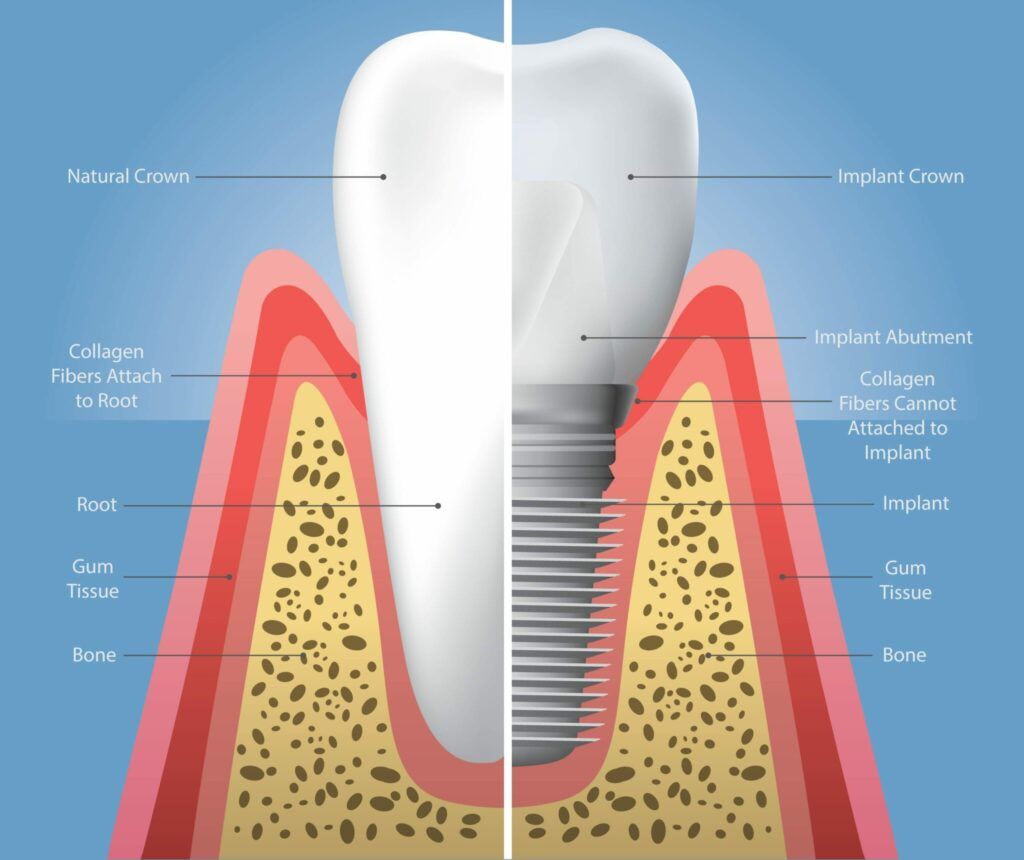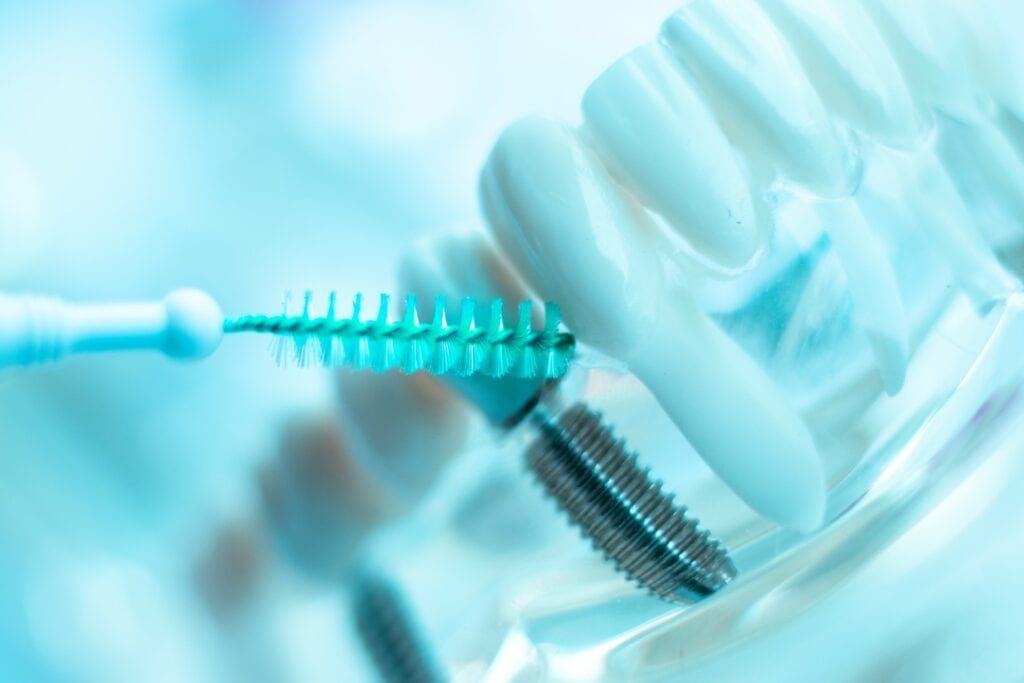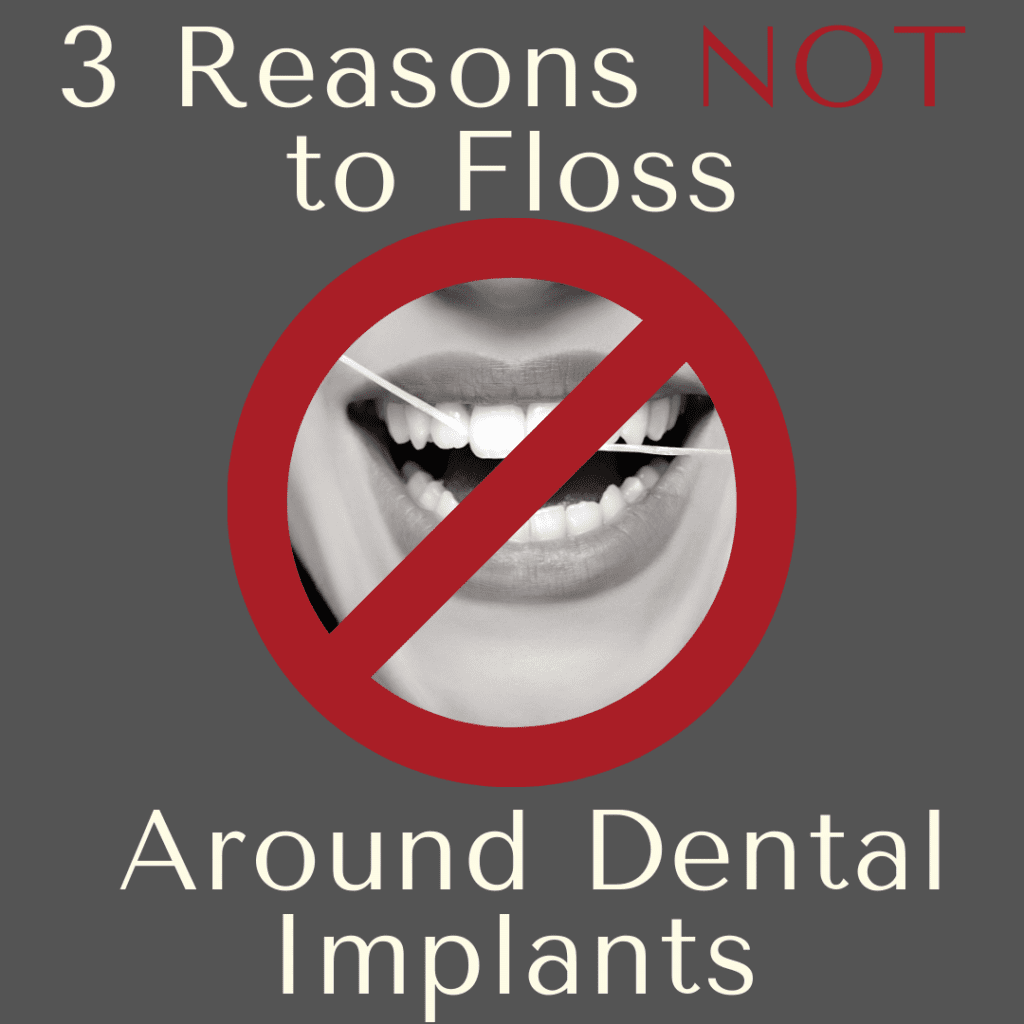Chances are, you’ve always been told that flossing is of the utmost importance when it comes to maintaining your oral health. While this may be true for people with natural teeth, many dental professionals are starting to realize that flossing may be detrimental to people with dental implants. Now, this doesn’t mean that you should simply stop flossing around your dental implants, especially if your dentist has advised you to floss. This is because some people with dental implants can benefit from traditional flossing, while others may need to try alternative techniques for cleaning around their implants.
You should always follow your dentist’s guidelines for cleaning around your implants. However, here are some potential reasons why your dentist may advise you to steer clear of traditional dental floss:
Floss Shreds
One reason why your dentist may recommend against using dental floss around your implants is because floss can shred. Some types of floss are stronger than others, however every type of floss can shred and leave small pieces or particles behind. If these particles or pieces of shredded dental floss find themselves wedged between the implant and the gums, then this can cause the surrounding gum tissue to become infected. In severe cases, peri-implantitis can develop and cause the implants to fail.

Dental Implants Have Different Spacing
Despite the fact that dental implants are made to resemble the appearance and function of natural teeth, they are not natural teeth. Since dental implants are available in different shapes and sizes, and are often placed at different depths, this means that the spaces around the implants vary from those between natural teeth. In some cases, these spaces may be too large for dental floss to effectively clean between the implants. Therefore it is recommended to use a more customized approach to “flossing” besides traditional dental floss.
Poor Technique Can Have Serious Consequences
One final reason why your dentist may advise against using traditional dental floss is because your technique may not be the best for your implants. Since flossing is a practice strongly dependent on individual technique, it is possible for some people to be effective flossers than others. If your flossing technique is sub-par, then the best case scenario is that you will miss places. However, the worst case scenario of a bad flossing technique could be implant failure. This is because the implants have a protective barrier around them that prevents bacteria from entering the bone. In natural teeth, this protective barrier would be the periodontal ligament. Unfortunately, the seal around dental implants is not as strong as periodontal ligaments around natural teeth, meaning that it can easily be broken with an aggressive flossing technique. Once the seal has been broken, it allows bacteria to enter the bone, which can eventually cause bone loss.
How to Clean Your Dental Implants
At this point, you are probably shocked to find out that flossing around dental implants could be detrimental to your oral health. You are also probably wondering how else you can clean around your implants. After all, without natural teeth you don’t have to worry about decay, but your gums are still susceptible to gum disease with implants. As mentioned above, just because you cannot “floss” in the traditional sense, does not mean that you should neglect that part of your oral hygiene routine altogether. Instead, your dentist may recommend trying one of the following:
Interdental Brushes

Interdental brushes are composed of round or cone-shaped bristles supported by a thin wire and attached to a graspable handle. These brushes are available in different lengths, as well as different shapes and sizes so they can be used to clean around various dental restorations. To use an interdental brush, simply place the brush between your teeth and move it up and down, and side to side along the gum line, much like you would with dental floss. Unlike floss, however, interdental brushes do not fray and are designed to effectively clean around implants with varying amounts of space between them.
Water Flossing
Water Flossing, sometimes referred to as oral irrigation, uses a small handheld device to spray a pulsing stream of water into your mouth. This stream of water is used like traditional dental floss in that it is directed in between the teeth and along the gum line. Unlike dental floss, however, water flossing does not leave any particles behind, nor does it require additional materials from the water flosser machine. After investing in a water flossing machine from the American Dental Association, this will help you to effectively clean around your implant without damaging the surrounding tissue.

Dr. Sarmad Channo, a Rochester, MI dentist, received his doctorate degree from New York University Dental School. Since then, he has continued studying to broaden his expertise and has also graduated from Progressive Orthodontic Seminars with the highest of honors. Dr. Channo has also served as an instructor for both the McGann Postgraduate School of Dentistry and Progressive Orthodontic Seminars.

